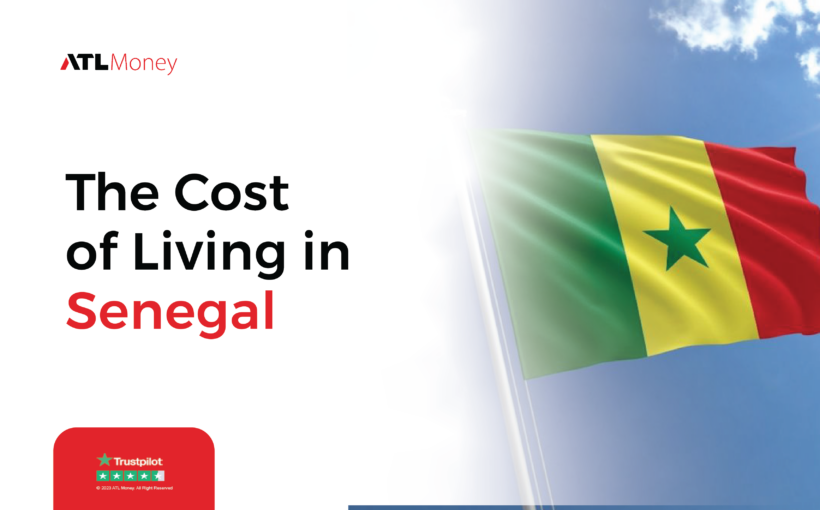Senegal, the westernmost nation in Africa, beckons with its vibrant culture, stunning beaches, and welcoming spirit.
Often referred to as the “Land of Teranga” (meaning hospitality in Wolof), Senegal offers a unique blend of French colonial influence and rich West African traditions. But before embarking on your Senegalese adventure, understanding the cost of living becomes crucial.
This guide breaks down the essential expenses you’ll encounter, empowering you to create a realistic budget and fully enjoy your time in Senegal.
All about Senegal’s Currency
Senegal’s official currency is the West African CFA franc (XOF). Exchanging your home currency for CFA francs is a necessary first step. While some tourist areas might accept euros, relying on local currency ensures smoother transactions throughout your stay.
Research currency exchange rates before your trip and consider using reputable money transfer services to send money to Senegal for a competitive exchange rate and secure transaction.
Accommodation
Accommodation costs in Senegal vary depending on your desired level of comfort and location. Budget-conscious travelers can find basic hostels or guesthouses for around $10-$20 per night. Mid-range hotels in tourist areas typically range from $40-$80 per night, while luxury accommodations can reach upwards of $200 per night.
Food
Senegalese cuisine is a delightful fusion of African, French, and Arabic influences. Street food offers a delicious and affordable way to experience local flavors. A hearty plate of “thiéboudienne” (fish and rice dish) or a flavorful “mafé” (peanut butter stew) can cost as little as $2-$3. Local restaurants offer sit-down meals for around $5-$10, while upscale establishments can be pricier.
Transportation
Public transportation in Senegal is a budget-friendly option. Local buses (“car rapides”) are an inexpensive way to navigate cities, costing around $0.50-$1 per trip. Taxis are readily available and can be negotiated beforehand. Renting a car offers more flexibility but requires an international driver’s license and can be more expensive, especially if factoring in fuel costs.
Daily Necessities
Groceries in Senegal are generally cheaper than in Western countries. Fresh produce from local markets is the most affordable option. Necessities like bottled water, toiletries, and phone cards won’t significantly impact your budget.
Activities and Entertainment
Senegal boasts a wealth of cultural experiences. Entrance fees for museums and historical sites typically range from $5-$10. National parks like Niokolo-Koba National Park offer guided tours and safaris at varying costs. Bargaining is a common practice at local markets, allowing you to find unique souvenirs and handcrafted items at reasonable prices.
Budgeting Tips for Senegal
- Set a realistic budget: Factor in all potential expenses, including transportation, food, activities, and unexpected costs.
- Embrace local markets: Stock up on groceries and souvenirs at local markets for the most affordable prices.
- Utilize public transportation: Public buses and taxis offer a cost-effective way to get around.
- Consider cooking some meals: Preparing some meals in your accommodation can significantly reduce food costs.
- Bargain effectively: Negotiate prices at markets and for taxi fares.
- Send money from home: Sending money from home using a reliable service like ATLMoney ensures you have access to funds throughout your trip.
Living the Senegalese Dream
With careful planning and budgeting, Senegal offers an enriching and affordable experience. By immersing yourself in the local culture, savoring the delicious cuisine, and exploring the breathtaking landscapes, you can create lasting memories without breaking the bank. Remember, a little planning goes a long way in ensuring your Senegalese adventure is both enjoyable and budget-friendly.
Ready to support loved ones in Senegal or plan your dream trip? ATLMoney offers secure and affordable money transfer services to make sending money to Senegal a breeze.
